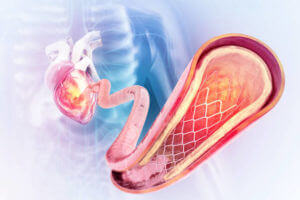
When it comes to the health of your heart, it is critical to have a qualified heart doctor who can diagnose and treat your heart condition effectively. However, with so many types of cardiologists around, finding the right one for your heart issue can be challenging.
Let’s explore the differences between the two most important types of heart doctors – interventional cardiologists and general cardiologists. Additionally, we will discuss which one of the two you should see for your heart health.
General Cardiologists: Who Are They?
A general cardiologist is a medical doctor who specializes in making diagnoses and providing treatment for conditions affecting the heart and blood vessels. A general cardiologist is an expert in the non-invasive evaluation and treatment of heart issues, meaning they do not perform invasive procedures on the heart.
General cardiologists generally perform tests like echocardiograms and stress tests and manage chronic heart diseases like arrhythmias, heart failure, hypertension, angina, high cholesterol, and more.
It’s worth noting that general cardiologists may manage heart disease with medications, lifestyle changes, and other non-invasive therapies. Your general cardiologist may also coordinate your care with an interventional cardiologist, cardiac surgeon, or other type of cardiologist for optimal results.
Interventional Cardiologists: Who Are They?
An interventional cardiologist is a heart doctor who specializes in invasive procedures to repair damaged or weakened arteries, veins, and other parts of the heart. It’s important to mention that interventional cardiologists do perform invasive procedures, but they are not surgical procedures.
An interventional cardiologist can perform angioplasty and stenting and can insert devices like defibrillators and pacemakers to treat heart diseases like coronary artery disease and carotid artery disease. The invasive procedures that an interventional cardiologist offers have less downtime and faster recovery time compared to traditional surgical procedures.
An interventional cardiologist performs all the invasive procedures on the heart in the cardiac catheterization laboratory (cath lab) – a lab where catheter-based procedures are performed.
Which One Is Right for You?
The answer to this question largely depends on the nature and severity of your cardiac issues. For example, if you have an urgent or complex heart disease like myocardial infarction (heart attack) or heart valve dysfunction that requires an invasive procedure, you are likely to benefit from an interventional cardiologist.
On the other hand, if you have a chronic or stable heart disease, it’s best to see a general cardiologist to better manage your heart disease in the long term.
When choosing a cardiologist, consider whether they are board-certified, have the necessary expertise to perform the procedure, or offer the treatment you need, and take time to listen to your concerns and answer your questions.
Cardiologist in Northern New Jersey
If you are looking for a highly trained and experienced cardiologist in New Jersey who can provide comprehensive treatment for heart issues, visit us at Hudson MD Group.
At our multispecialty medical practice, we provide comprehensive, individualized, and compassionate care for patients with heart disease and other cardiovascular disorders. We also offer primary care services as well as on-site diagnostic testing services, so you can have all your health care needs taken care of under one roof.
If you would like to know more, call us today at (973) 705-4914 or use our convenient online form to send us a message.


